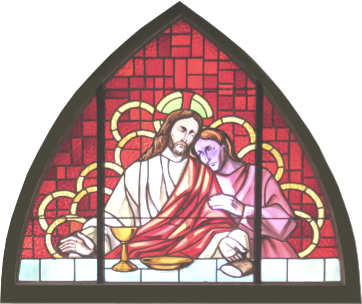Greetings and Happy Easter to you all.
The refrain that resonates for us today is very simple: “Christ has Risen from the dead!” It is a simple phrase but it echoes in the heart of darkness, and carries a world of hope with it.
A friend recently mentioned to me a powerful and puzzling line from J.R.R. Tolkien’s, The Lord of the Rings, where Galadriel is speaking with Frodo, and speaks of how she and her husband “together through ages of the world …have fought the long defeat.” In a trilogy which has deeply Christian underpinnings and a message of hope, it seems a dark depiction of life: fighting a long defeat.
If this Easter finds you at a time when life is wonderful, the future is bright as a Summer’s day, and joy is all around, God bless you. Go out and sing your Easter alleluias with a light heart. The First Letter of Peter tells us, “always be ready to give an account of the hope that is within you.” That’s easier to do when all is well, at a time of success, health, and wholeness.
But if you are living through Holy Week and the liturgies of Holy Thursday, Good Friday, and Easter with serious challenges in your life, well, the Scriptures invite you to feel right at home there. Whether it’s a broken hip, a struggling or wounded relationship, or a diagnosis of cancer; when we get thrown a curve ball that leaves us feeling bewildered; when the institutions and communities we trust fail us or fail others; when it’s rejection where a welcome was expected; when our high ideals come up against life’s disappointments; when we struggle with depression and darkness; when we experience ‘life at its dirty work’ to borrow a phrase from Graham Greene; when you feel like you are fighting a long defeat: then, then being able to locate hope is altogether more needed, and more challenging.
At such times, we can feel crushed. But we also have an entry point into the death and resurrection of Jesus that is closer to the experience of the disciples, closer to the experience of Jesus himself. The Lord was there on Good Friday. And in the Gospel accounts of the Resurrection, we see the Lord precisely entering into the darkness that the disciples are experiencing, and by his very presence, alive, opening a horizon of hope that they could not have imagined.
I was thinking about a word we sometimes use as an adjective – ‘Godforsaken’. When I was working in Italy I saw a film called “Christ stopped at Eboli”. Eboli, south of Naples, is part way down the Italian coast, and south of it, at least as the film described it, was a “Godforsaken place.” Christ didn’t make it that far. Well, the resurrection account suggests otherwise. That there is no place of darkness that the Risen Lord can’t reach. Because the Resurrection happens in the midst of great evil and darkness and desolation, it suggests that there is no place in the human condition that is ultimately Godforsaken. That’s what we proclaim when in the creed we say that after his death on the cross, Christ descended into hell, to bring light to the place which by definition was Godforsaken.
A vital part of Christian life is learning to view and interpret our lives, especially our most difficult experiences, through a paschal lens. Lying on the ground after falling and breaking my hip, I was thinking “whoa, I’ve never felt pain like this…” And I realized that many people experience even worse pain, or pain that lasts a lot longer than what I experienced. I don’t want to be glib about this. When you are suffering, it’s hard to think of much else. But when the space opens up to ponder our lives, in their complexity and yes, in their brokenness, I invite and encourage you to look at central mysteries of our faith precisely in relationship to your life, our communal lives. The Christian message is this: Christ comes into the human condition, becomes incarnate, embraces it fully. After a life of living deeply, of joy, of bringing life to others, of love, of challenging injustice and walking with those who are wounded, he is crushed, and out of love, suffers a humiliating cruel death. And there, there God pronounces that life prevails, that love conquers, that death is not the last word. There, in the paschal mystery, we see most clearly the face of God, and we see most clearly the pattern by which God wishes to save us.
Christian hope is located precisely there. And it is for each of us, through the eyes of faith, to learn to interpret our lives in light of what God reveals there. God walks with us in the human condition, in all its beauty and its brokenness. God walks with us when we ourselves experience suffering, darkness, abandonment and ultimately death. Sometimes our life can feel, in Tolkien’s words, like fighting the long defeat, but Tolkien knew that this was not the whole picture, not the last word. God does not leave us in the tomb; we were not born, we do not live, ultimately to remain in the tomb. On Easter morning, the tomb is empty, Christ lives. And you and I, living with that hope, with that lens of what God is doing, are set free, in joy, free to live and love as Jesus did, knowing that his Risen presence is with us always.
Happy Easter, everybody!
✠Donald Bolen, Archbishop of Regina
